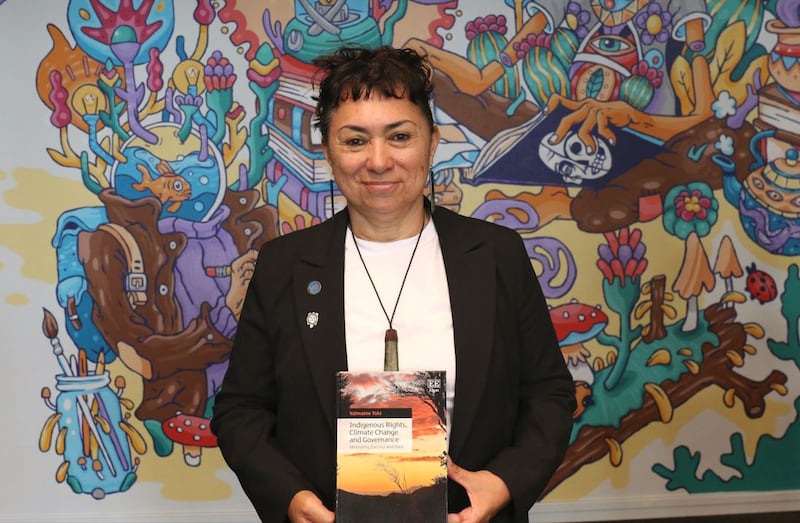Valmaine Toki (Ngāti Rehua and Te Rarawa) says there are clear synergies between Te Tiriti o Waitangi and the Declaration on the Rights of Indigenous Peoples (UNDRIP).
“All Indigenous issues intersect with our struggles, whether it’s climate change, access to direct funding, rights to lands, territories and resources, violence against Indigenous women, extractive industries, they all affect us,” she said.
“We as Indigenous peoples are trying to provide a better way forward.”
Leading EMRIP on the world stage
Toki is in Geneva for the 18th session of the Expert Mechanism on the Rights of Indigenous Peoples (EMRIP) between 14 and 18 July.
She is the first New Zealander appointed by the UNHRC President and has served as an active member since 2022, and has been reappointed for a final three-year term.

Appointed Chair last year, Toki describes the role as being a māngai for their collective voices. EMRIP includes seven independent experts from across the world’s socio-cultural regions who provide advice to the HRC. Toki says this diversity makes for a “really rich tapestry of discussion”.
Toki is a Professor of Law at the University of Waikato, where she contributes to the international advancement of indigenous rights through her work at the university.
Indigenous data rights and traditional economies
This EMRIP session includes studies and advice on the rights of Indigenous peoples to data, such as data collection and disaggregation, and a report on the rights of Indigenous peoples to their traditional economies.
On Tuesday, a panel will discuss the role of regional human rights institutions in achieving the aims of UNDRIP. Toki says she’s pleased that the New Zealand Human Rights Commission will be a panelist, confident they’ll offer valuable insights from an Aotearoa perspective.
“In my opinion, one of the key parts of our mandate is country engagement where we get to understand what is actually happening on the ground,” Toki said.
The UN has three main bodies that work on Indigenous rights
- The Special Rapporteur on the rights of indigenous peoples, Dr Albert K. Barume
- The United Nations Permanent Forum on Indigenous Issues (under the UN Economic and Social Council)
- The Expert Mechanism on the Rights of Indigenous Peoples (under UNHRC)
In addition, the UN Voluntary Fund for Indigenous Peoples provides grants to support indigenous communities and organisations to participate in UN mechanisms.
These bodies help states fulfil UNDRIP through the promotion and protection of Indigenous rights.
UN funding crisis has uncertain impacts
Toki also raised concerns about the UN’s liquidity crisis, with member states failing to meet their financial obligations. There is currently $2.4 billion unpaid for the regular budget and $2.7 billion in peacekeeping.
This has led to hiring freezes, spending cuts, and scaled-back operations.
“It’s unclear what impacts this will have,” Toki says, “but there may be a need for myself as Chair, and EMRIP members, to be more creative.”



